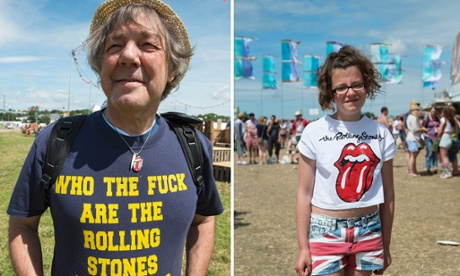When it comes to African music, Glastonbury stands taller than most A-list rock'n'roll festivals. Way back in 1982, the percussion wig-outs of Nigeria's King Sunny Ade were a revelation to me: music, I realised, didn't have to involve pasty-faced white guys playing guitar, bass and drums. Since then, such heavyweights as Fela Kuti, Amadou and Mariam, Ali Farka Touré, Salif Keita, Tinariwen and Oumou Sangaré have all graced Glastonbury.
African music-heads will have noticed that most of those acts are from Mali. That's no coincidence: the country is a music powerhouse, fertilised over the centuries by the griots (or bards) with their epic poems and lineages stretching back generations, the dazzling intellectual life of the campuses at Timbuktu and Djenné, the explosion of Cuban and jazz-influenced popular music in the 1950s and 60s, and all the biennales and youth weeks that were designed to build Mali's sense of nationhood after independence in 1960.
That heritage has given us a country, like Ireland or Jamaica, famed for its music. So last September, when all music apart from Quranic chanting was banned by armed jihadi groups in the northern two thirds of Mali, Glastonbury felt compelled to react. "It just seemed like we had to show some solidarity," says Nick Dewey, chief booker for the festival, which starts at the end of this month. "We felt we needed to communicate the situation: a lot of people didn't know anything about it. Offering some of its musicians the chance to open up the Pyramid stage seemed a nice idea "
The singer-songwriter Rokia Traoré, lyrically lucid and musically iconoclastic, will be kicking things off on Saturday. "Glastonbury's support goes straight to the heart," Traoré says. "But even now that the ban on music has gone, there's still so much to do – to make sure Malian musicians can live off their art and contribute to the renewal and evolution of the country."
Bassekou Kouyate – a virtuoso on the tiny ngoni, the granddaddy of every rock guitar ever strummed – will serenade all those sore Sunday lunchtime heads with a set on the Pyramid stage, dishing out honeyed notes like a particle accelerator, and dressed like a potentate in resplendent African robes. Another Africa Express favourite, Jupiter and Okwess International from Kinshasa in the Democratic Republic of Congo, are opening on the main stage on the Friday. Jupiter Bokondji, who started out in a band called Bongo Folk, may not be Malian, but he knows all there is to know about battling obstacles to follow your musical dreams, having lived through his own country's civil war in 2003; he stayed, but his bandmates fled.
Fatoumata "Fatou" Diawara, the brightest new star in Mali, is playing at Saturday lunchtime on the West Holts stage. Earlier this year, Fatou gathered together a multi-ethnic array of Malian musicians to record an irresistible song called Mali-ko (Peace). The track has become the most visible and widely covered of the many musical reactions to the Malian crisis, which last year saw armed Islamists and Tuareg nationalists fighting over the north. Coupled with a military coup in the south, this consigned a once-lauded African democracy to the scrapheap.
Representing the north of Mali, Tuareg rockers Terakaft will be on the Spirit of '71 stage on Sunday – although in their case, it's more about the spirit of '63 or '91, the years when the Tuareg people rose up to fight for their freedom and culture. "It was a great shame when the Islamists banned music in our country," says Sanou Ag Ahmed of Terakaft. "Alcohol, cigarettes, music – they banned it all. We need the freedom to sing about what we see and about what's happening back home. We're not dogs. We love everyone, Malians, Africans, and we don't like war. What use is war?"
A DJ set at Silver Hayes (formerly the Dance Village) by Mo DJ, one of the finest turntablists from the Malian capital Bamako and a regular at Africa Express, will wrap up the Malian presence. Dewey and his wife, Emily Eavis, daughter of festival founder Michael, have no intention, however, of plunging Glastonbury into the political debate that still rages in and around Mali. It's a wise approach given that even journalists, academics and analysts have trouble fully understanding the crisis that continues to grip the country despite the French army's expulsion of the armed Islamist militias in March.
"The whole point of the festival," says Dewey, "is to have people from all over the world – every type of music and performer, every age group, from all classes. So it's not a question of us taking a political stance. It's just about saying, 'You might not be able to play music at home, but you can come and play it here.'"










